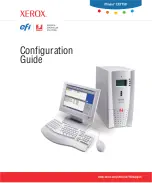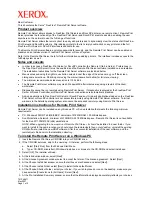
Bulk loading data using the LOAD TABLE statement
188
Table 5-2: Memory messages
Main IQ Store blocks messages
This line describes the permanent (main) IQ Store:
Main Blks: U63137/6%, Buffers: U12578/L7
Table 5-3: Main blocks
IQ Temporary Store blocks message
This message provides similar information to the Main IQ Store Blocks
message explained above.
Temporary Blks: U273/0%, Buffers: U1987/L1960
Main buffer cache activity message
This line displays information about the main buffer cache.
Main I: L331224/P22 O: D25967/P7805 C:D0
Item
Description
Mem: # mb
Current memory being used by this Adaptive Server IQ
server, in megabytes.
M# mb
The maximum number of megabytes used by this IQ
server since it was started.
Item Description
U#
Number of blocks in use.
#%
Percentage of database filled.
Buffers:
U#
Number of buffers in use.
Note: This value will grow to maximum number of buffers that fit in
the main buffer cache. The number increments whenever a buffer is
allocated, but only decrements when a buffer is destroyed, not when it
is unlocked or flushed. When it decreases, you have hit the current limit
of virtual memory available and new memory is coming from buffer
cache or you have an error and insert has been rolled back and restarted.
L#
Number of locked buffers. This number increments whenever you
request a buffer. If you exceed the maximum while running a script, the
command that exceeds it will fail and subsequent commands may
complete incorrectly.
Summary of Contents for Adaptive Server IQ 12.4.2
Page 1: ...Administration and Performance Guide Adaptive Server IQ 12 4 2 ...
Page 16: ...xvi ...
Page 20: ...Related documents xx ...
Page 40: ...Compatibility with earlier versions 20 ...
Page 118: ...Troubleshooting startup shutdown and connections 98 ...
Page 248: ...Importing data by replication 228 ...
Page 306: ...Integrity rules in the system tables 286 ...
Page 334: ...Cursors in transactions 314 ...
Page 396: ...Users and permissions in the system tables 376 ...
Page 438: ...Determining your data backup and recovery strategy 418 ...
Page 484: ...Network performance 464 ...
Page 500: ...System utilities to monitor CPU use 480 ...
Page 514: ...Characteristics of Open Client and jConnect connections 494 ...
Page 536: ...Index 516 ...
















































